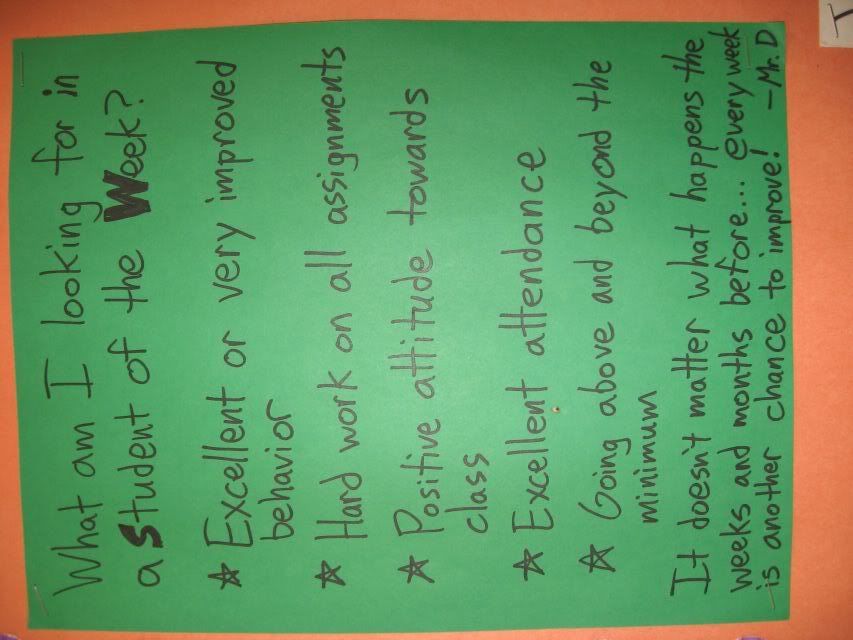This is the first part of a two week series where I will discuss my five biggest failures and five biggest successes as a teacher this year.I'm ashamed to admit this, but sometimes I fail to follow my own advice. You will find few bigger advocates for well organized classrooms than yours truly. Yet perhaps my biggest failure this year has been to abandon many of my most tried-and-true systems and procedures, and each omission has had far reaching consequences.
NotebooksI have used my own version of the
Interactive Student Notebook since I began teaching. Notebooks are highly organized with numbered, dated and titled pages. Building up to, responding to and creating things for the notebook is a central part of each class period. It makes it easier for students to follow challenging topics by having everything in one place. If students are absent, they can get notes and assignments from my "master" notebook . Studying for tests is as easy as saying, "The test covers everything we did from pages 10-20."
I basically made notebooks an afterthought this year, when my current students needed that structure more than any group I've had before. Attendance is sporadic, and even many of those that come to class regularly are completely unorganized. My shelves are now full of dust-covered, rarely used notebooks. Most importantly, it made
getting class started excruciatingly difficult.
Do NowI didn't abandon the Do Now, but
I failed to hold my students accountable for it until recently. In years past, students had the first five minutes after the bell to complete it. I would then check it for completion, with each student receiving either a check (100) or zero each day (this would be tallied into part of their grade). Afterward we would go over the question together, and it would lead directly into whatever I was teaching that day.
The result of me not checking it for the first half of the year was that I got incredibly frustrated at how difficult it was to get class started every day. Nobody did the Do Now, so students had no idea what I was talking about when I attempted to go over it. Since this was the logical lead-in to the rest of the lesson, we were doomed from the start.
I wish I had a good explanation for why I didn't do it, but there's no excuse for it. My best proof of how important this is is that as soon as I went back to holding my kids accountable for the Do Now, I immediately saw an improvement across the board.
Student of the Week
I don't know where the idea came from, but recognizing a Student of the Week for each class period has been a standard part of my classroom since I started. It's designed to recognize an extraordinary effort, huge improvement or consistent excellence either academically or behaviorally.
There was no tangible reward attached to this honor, although I did usually drop the lowest grade for students who achieved it in a given grading period. I could tell you that students were very much interested in getting it and extremely excited about receiving it.
One reason I abandoned it this year was that my school has weekly community meetings in which students, teachers and staff give each other beads to recognize the same kind of things I would normally recognize in a Student of the Week. Of course, I quickly realized that I wouldn't be able to recognize all of the students I wanted to, but it just became something else that fell by the wayside. I could make an excuse about how awful behavior was across the board early in the year, but that's
exactly why I needed to recognize the students who were doing a great job. It's one of my single biggest regrets.
In a SentenceStick with what works!

